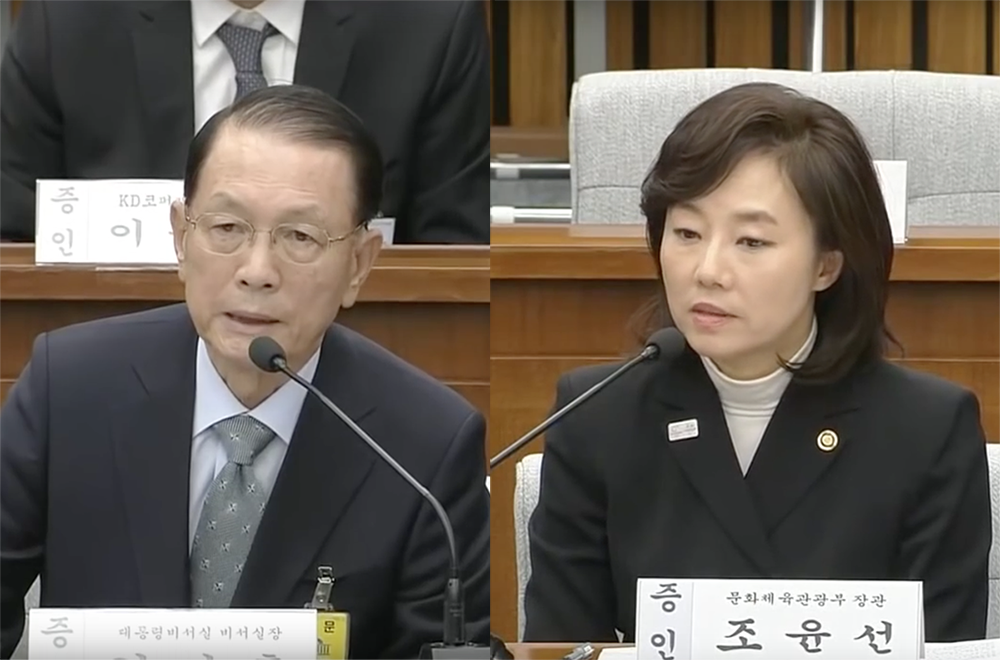News
Former South Korean Culture Minister Acquitted of Charges for Artist Blacklist


The Seoul Central District Court acquitted Cho Yoon-Sun, the former culture minister of South Korea under the Park Geun-hye administration, of her charges related to the creation of an “artist blacklist.” The judge found no clear evidence indicating Cho’s active involvement in the creation of the list, although she was aware of its existence and lied at a congressional hearing, denying its presence. For the latter crimes, she was sentenced to one year in prison, suspended for two years. After the court ruling, Cho remarked while leaving the court that she is “glad things were cleared up" and that she “will comply fully with future procedures.” The prosecution had asked the court for six years’ imprisonment for Cho in the final hearing on July 3.
The “artist blacklist” is a roster of names of Korean cultural figures compiled when Park Geun-Hye was president of South Korea. These artists, film directors and other figures were critical of the then-conservative administration. The list included artists who supported the opposition candidate of the 2012 presidential election—Moon Jae-In, who is now president of South Korea—the current mayor of Seoul and one of the prominent then-opposition leaders Park Won-Soon, as well as those who demanded answer regarding the 2014 Sewol Ferry Disaster. The list included almost 10,000 names, including Han Kang, a prominent writer and winner of the 2016 Man Booker International Prize, and Park Chan Wook, a well-known film director known for his 2004 Cannes Film Festival Grand Prix Award winning film Oldboy. The blacklisted artists were revoked of their state subsidies during the Park’s rule.
Cho served as the minister of culture from September 2016 to January 2017, and was widely believed to have been the person in charge of creating the list. She was also charged for blocking the screening of a documentary called Diving Bell at the 2014 Busan International Film Festival, due to its critical stance toward the government for the Sewol Ferry Disaster. Despite the testimonies of artists of their funding cuts from the government and Ministry of Culture officials acknowledging the influence of the Blue House on the creation of the list, Cho was left unscathed. However, Kim Ki-Choon, the former chief of staff during the Park administration, was sentenced to three years in prison and was labeled as the main culprit behind the “artist blacklist.”
Kim and Cho were arrested in January earlier this year for allegations related to the blacklist. The two ex-officials’ sentences are stirring up controversy within South Korea.
Je-Seung Lee is an editorial intern at ArtAsiaPacific.
To read more of ArtAsiaPacific’s articles, visit our Digital Library.







